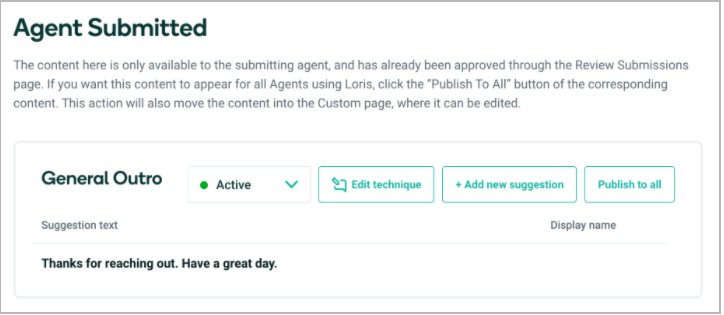While some surveys show that people prefer to talk to a human as opposed to a chatbot, whether they’re shopping online or dealing with a customer service issue, that hasn’t dissuaded companies from adopting them. A 2019 Salesforce report found that 53% of service organizations expected to use chatbots within 18 months. According to Statista, the size of the global chatbot market could surpass $1.25 billion by 2025, a steep climb from $190 million in 2016.
A customer’s satisfaction — or lack thereof — with a chatbot ultimately depends on the scenario and the capabilities of the chatbot in question. Obviously, a chatbot that fails to answer basic questions will lead to frustration. Countless vendors claim to have thoroughly thought through the problem, including Loris, But Loris, which today announced that it raised $12 million in a Series A round, is different than many in that its software is designed to coach customer service reps rather than respond to customer requests.
“Loris was founded … with the idea of increasing empathetic communications in the world. At the heart of our software origin story is [an] AI-based solution delivering de-escalation techniques and language suggest features that guide customer service agents through the most challenging conversations,” CEO Etle Hertz told TC via email. “Loris offers granular, impactful data that can drive decisions across the business, because it incorporates customer sentiment in real-time, every day. We see the future of commercial winners and losers tied to customer service experiences and their direct impact on the profit chain.”
Loris
Loris was launched in 2018 by Nancy Lublin, the former CEO of nonprofit social advocacy group Do Something and the founder of the Crisis Text Line, a suicide prevention organization. Lublin had the idea to take learnings from the Crisis Text Line, which trains counselors to calm people down and walk them through their issues, and build them into a system that could help employees and companies navigate conversations about customers.
The approach proved to be controversial. In February, after Politico revealed that the Crisis Text Line — a shareholder in Loris — funneled data from conversations with Loris, the Crisis Text Line said it would stop sharing the data and require Loris to delete any data that it had received. (The Crisis Text Line maintains that the data was handled “securely, anonymized and scrubbed of personally identifiable information.”)
“We draw our insights from anonymized, aggregated data that have been scrubbed of personally identifiable information,” Hertz emphasized when asked about Loris’ privacy and data retention policies. “We retain only non-personally-identifiable data, so that we may continue to use it to improve our services … We’re audited annually by firms such as Deloitte to ensure compliance.”
On this last point, it’s worth noting that the “big four” accounting firms, including Deloitte (along with EY, KPMG, and PwC), have been found to produce a high number of botched corporate audits. But taking Hertz at his word, Loris ethically trains its systems to guide human customer service agents with suggested language and techniques, leveraging AI to analyze conversation data in real time and provide insights like the top reasons behind conversations that end with low satisfaction.

Image Credits: Loris
Recently, Loris — which is designed to lay on top of existing customer service systems — began piloting the ability to use sentiment analysis to predict when a customer might churn and recommend the appropriate strategy. “We gather feedback from our users and empower agents to help make the system better,” Hertz said.
Looking ahead
Loris positions its platform as beneficial for agents — not just customers — at a time when the volume of customer service requests is increasing and customers have higher expectations of brands. As per a recent Zendesk report, 70% of customers now expect real-time conversations, with live chat requests jumping 36% over the last year.
Some research shows that customer service agents are wary of AI and automation tools. But Hertz argues that, especially for agents whose native language isn’t English, Loris’ sentiment analysis tools can help them adjust their responses to hard-to-discern tones, leading to better outcomes — assuming those tools aren’t biased.
“We have analyzed tens of millions of customer service messages across multiple domains. This provides us with a large, diverse dataset to help mitigate bias,” Hertz said.
Brands considering adopting Loris will have to weigh the pros and cons of rival solutions like Google Cloud’s Agent Assist and Contact Lens for Amazon Connect, which also use sentiment analysis. Call center service provider incumbents like Dialpad offer sentiment analysis features, as well, as do companies including Cogito, Saygent, and SugarCRM.
Hertz says the plan is to put the capital from the latest round toward research and technology as part of a “robust pipeline of expanded features” for the “thousands” of agents across a client base that includes Freshly, Fiverr, and Slice.
“These [features] will further enable non-technical leaders that oversee customer service and support teams to efficiently and effectively scale the ‘human touch’ of their departments … More specifically, we will continue to evolve our insights tools — [which] serve as an out-of-the-box data science partner for customer experience leaders for identifying areas for improvement — and further augment their current empathic language guidance with configurable settings,” Hertz added. “Though there are other AI companies that work on automated responses, they tend to route to self-service … [we] focus on bringing together customer intent and sentiment analytics during and post- conversation.”
Loris, which has 15 employees, aims to triple its workforce this year. Bow Capital and ServiceNow co-led the Series A alongside existing investors Floodgate and Vertex Ventures.










